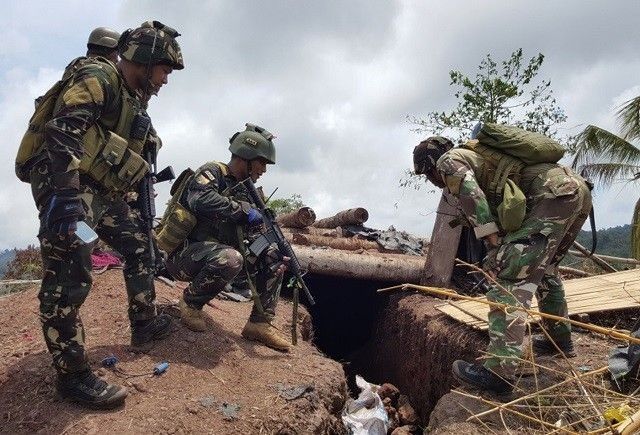Justice Caguioa: What is military's basis for tagging Abu Sayyaf for acts with unknown culprits?

MANILA, Philippines — Justice Alfredo Benjamin Caguioa asked the military on their basis of attributing some of the bombings to the Abu Sayyaf when they have yet to identify the perpetrators behind the incidents.
The Supreme Court started its two-day oral arguments on President Rodrigo Duterte’s martial law extension in Mindanao on Tuesday.
Top military and Department of National Defense officials attended the session as Solicitor General Jose Calida led the defense for the third martial law extension in Mindanao.
Solgen Calida confers with Interior and Local Government Secretary Eduardo Año before the oral arguments start. #MLX3Orals pic.twitter.com/AAkujmBrJu
— Philstar.com (@PhilstarNews) January 29, 2019
READ: Mindanao martial law: Similar petitions, slightly different SC
The justice pointed out that some of the incidents cited in the government’s annex filed before the SC do not identify the perpetrators and motives behind the bombings.
Caguioa specifically cited that there were 66 incidents, along with seven involving IEDs, where the report did not identify the perpetrators.
“Since these reports were made at the time indicated, would you be in a position to submit any update by which you were able to identify the perpetrators?” the justice said.
“If these reports do not identify the perpetrators, then what is the basis for the report to say that these acts are attributable to the [Abu Sayyaf Group]?” he added.
Caguioa also noted: “There are other entries also where perpetrators are labeled ‘believed to be ASG,’ ‘suspected ASG’ o undetermined number of ASG... Again, confirm if these perpetrators are ASG and what is the basis for that conclusion.”
Caguioa also pointed out an incident that state of a “family feud” where an Abu Sayyaf militant was killed by another member. He added: “How does that support the contention that rebellion persists?”
Under the 1987 Constitution, the president may place the country or a part of the Philippines under martial law “in case of invasion or rebellion, when the public safety requires it.”
Four groups of petitioners argued that rebellion no longer exists in Mindanao and that martial law lacks factual basis as prescribed by the Constitution.
But Calida insisted that rebellion exists. The government’s chief lawyer argued that Duterte specifically mentioned in his letter to the Congress that there were at least four bombings in 2018 and violent incidents committed by the Abu Sayyaf and Bangsamoro Islamic Freedom Fighters.
Major Gen. Pablo Lorenzo, AFP deputy chief of staff for intelligence, said that the incidents cited in the government documents were recorded in 2018.
Lorenzo added that they would update the reports in their memorandum that would be submitted on Friday, February 1.
LIVE: Oral arguments on petitions vs martial law extension — Day 1
- Latest
- Trending




























